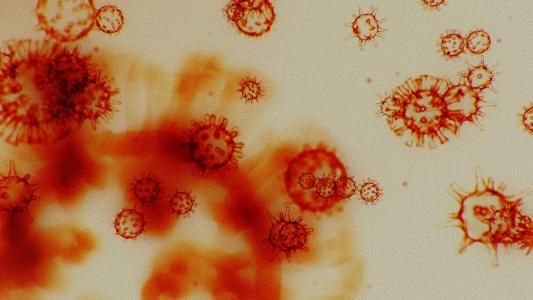The ubiquity of smartphones means most of us walk around with a GPS right in our pocket or purse — and now, researchers have developed an app that exploits the tech to track the coronavirus.
The app, Private Kit: Safe Paths, uses location-tracking technology to monitor a person’s movements, letting them know if they’ve crossed paths with someone diagnosed with COVID-19.
It’s not the only app designed to track the coronavirus — but its emphasis on protecting the privacy of users may help it gain traction in the United States.
A New Way to Track the Coronavirus
Researchers from MIT and Harvard led the development of Private Kit, with experts from several other organizations contributing to the effort.
To track the coronavirus, a person simply downloads the app and consents to sharing their location. The app then begins tracking their movements, storing up to 28 day’s worth of encrypted location data directly on their phone.
“App users are able to make more informed decisions on when to self-quarantine.”
Alina Clough
If a person is diagnosed with the coronavirus, they can choose to send that data to health officials via a QR code.
Using a web app, the health official then removes any information that might reveal the identity of the person before releasing the location data.
After that, the app sends alerts to any users who crossed paths with the diagnosed person, letting them know the details of the encounter, such as where it took place and for how long.
“Through more knowledge on their exposure, app users are able to make more informed decisions on when to self-quarantine or seek testing when experiencing symptoms,” Alina Clough, a Harvard researcher who worked on the app, told Fast Company.
Global Tracking of COVID-19
This isn’t the only attempt to track the coronavirus via smartphones.
Mobile carriers are now sending customers’ anonymized location data directly to health officials in Italy, Germany, and Austria so they can see how citizens are moving amid the coronavirus outbreak.
South Korea is using a combination of smartphone data, surveillance video, and other inputs to trace the paths of people diagnosed with COVID-19. Anyone can now visit a website to view those paths and see if they might have come in contact with an infected person.
China, meanwhile, launched its own app to track the coronavirus back in February. Just like Private Kit, it uses location-tracking tech to monitor citizens’ movements and let them know if they’ve come in close contact with someone diagnosed with COVID-19.
Unlike the MIT team’s app, though, China’s isn’t concerned with maintaining users’ privacy — a New York Times analysis found that the app sends their identifying information and location details directly to law enforcement in real-time.
If China’s app determines that a person may have come in contact with an infected individual, they can find their movement throughout the nation restricted — even if they haven’t been diagnosed with COVID-19 and show no symptoms of the virus.
The Impact of Private Kit
Because a person can be infected with the coronavirus and show no symptoms, it’s been incredibly difficult to track — and tracking the virus is essential to ending the outbreak.
Smartphones and their ability to record our movements in precise detail could fill this knowledge gap, but while they may now be ubiquitous, they’re also relatively new.
They certainly weren’t around during the last global pandemic, meaning this is the first time in history that humanity is facing a global infectious disease outbreak while armed with this trove of data on how the infection has spread.
But experts warn that citizens must think very carefully about how they allow governments to wield that weapon now as it could inform the way they use it in the future, too.
The U.S. is already attempting to get location data on citizens through mobile carriers as a way to track the coronavirus, but privacy concerns have stymied those efforts.
An app like Private Kit could balance the need for better disease surveillance with citizens’ right to privacy. But the app’s creators have acknowledged that Private Kit will only make a significant difference in the coronavirus outbreak if enough people use it.






